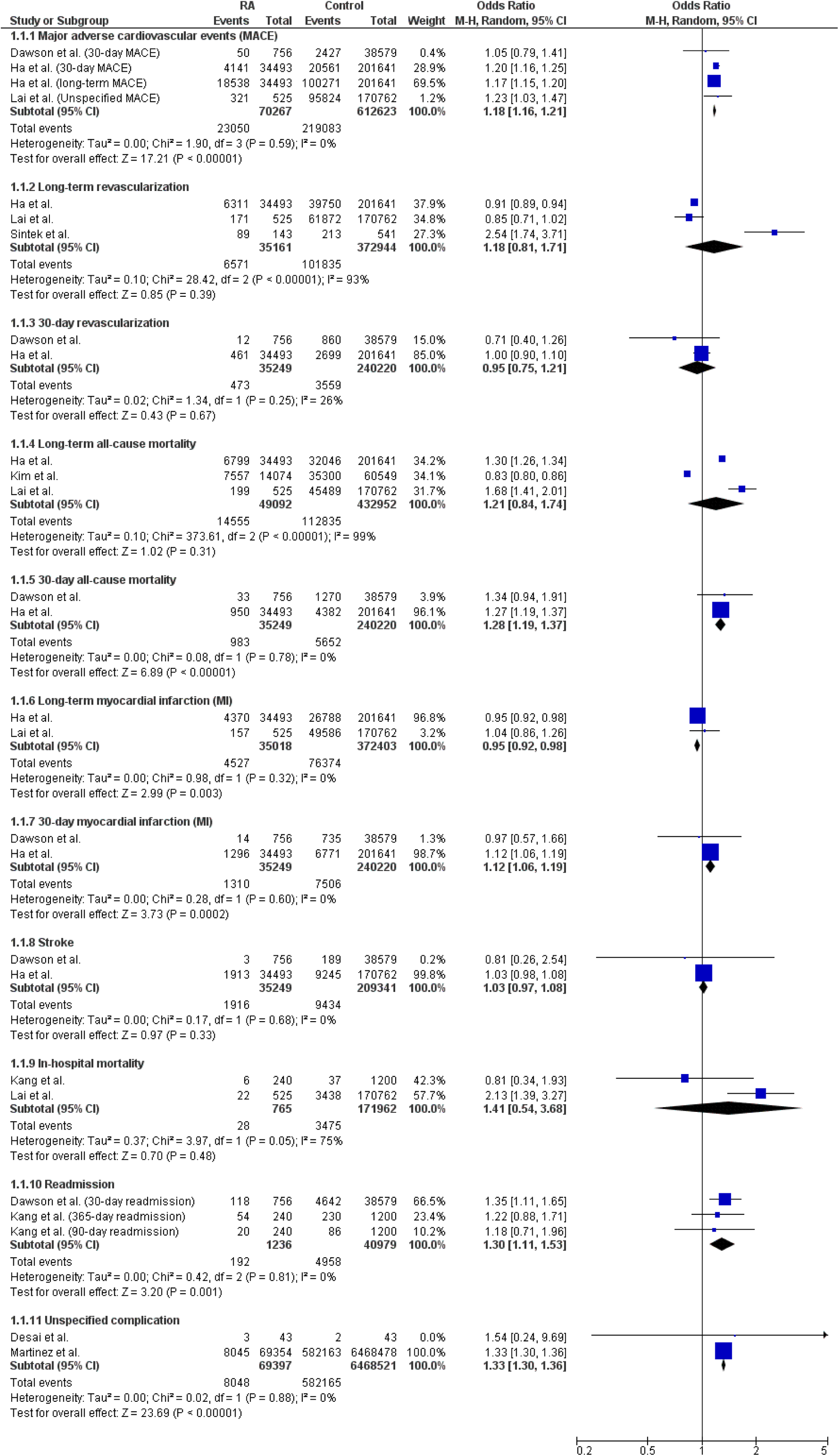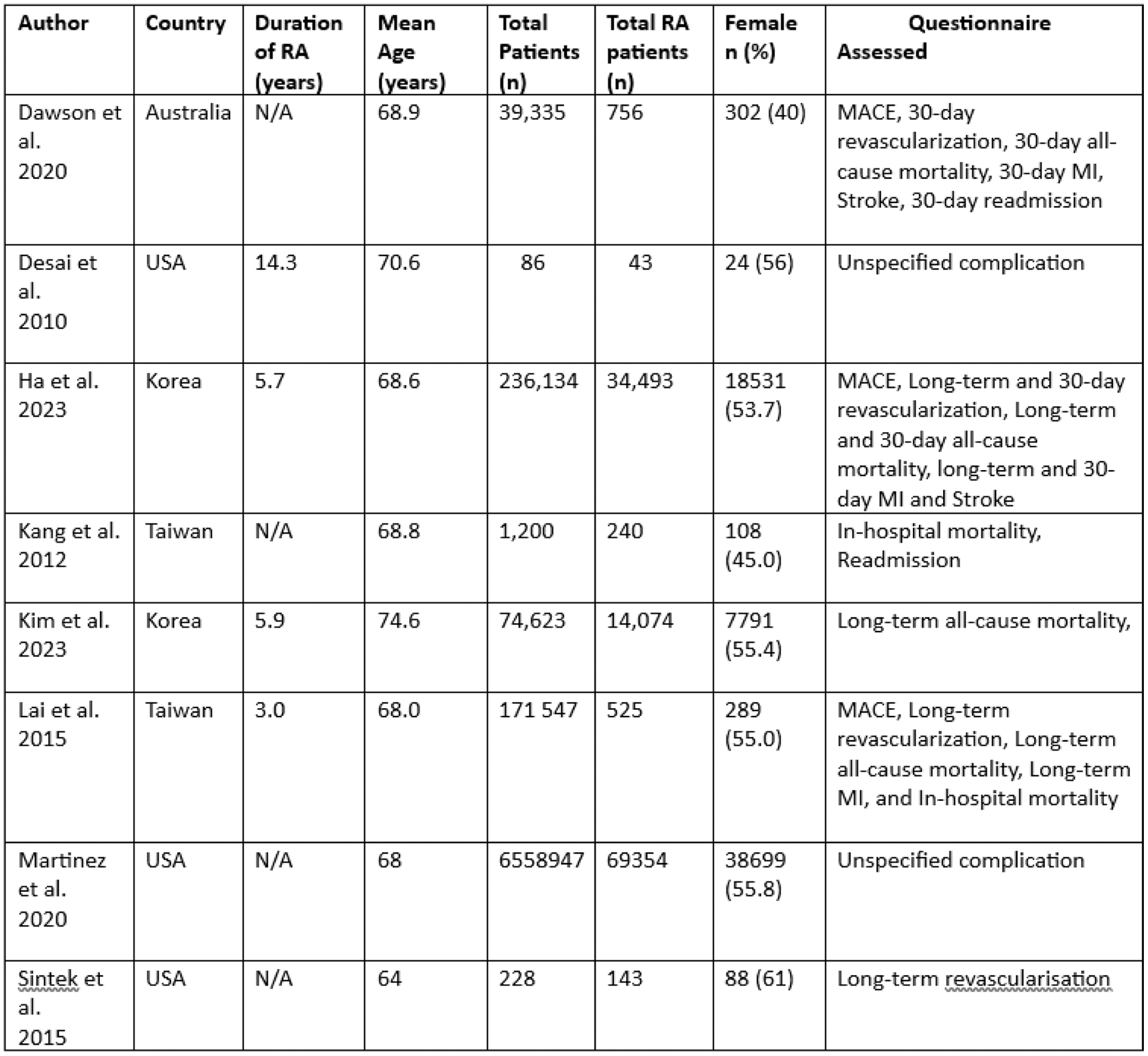

Background: Rheumatoid Arthritis (RA) is an inflammatory arthritis linked to an elevated risk of cardiovascular disease (CVD), including heart failure, myocardial infarction, stroke, and coronary revascularization. Recognized as an independent CVD risk factor, RA’s accelerated inflammation contributes to premature ischemic disease. Percutaneous coronary intervention (PCI) is a common revascularization method, yet research on its outcomes in autoimmune rheumatic diseases like RA is sparse and often involves small sample sizes. This Meta-Analysis aims to comprehensively assess PCI outcomes in RA patients compared to non-RA counterparts, delving into parameters such as MACE, revascularization rates, mortality, infarction, and complications to enhance management and mitigate adverse cardiac events.
Objectives: We aim to assess the outcomes of Percutaneous coronary intervention (PCI) in patients with Rheumatoid arthritis (RA).
Methods: A systemic search was conducted from electronic databases from inception to 15 th September 2023. All statistical analyses were conducted using Review Manager 5.4.1. Studies meeting inclusion criteria were selected. A random-effect model was used when heterogeneity was seen to pool the studies, and the result was reported in the Odds Ratio (OR) and the corresponding 95% confidence interval (CI).
Results: Eight observational studies were used to conduct our analysis. Quantitative analysis on eleven factors was done. A statistically significant increase in major adverse cardiovascular event (MACE) was seen in RA patients after undergoing PCI as compared to the control group (SMD = 1.18 (1.16, 1.21); p < 0.00001; I2 = 0%). There no significant difference in the long-term revascularization outcome between the RA and non-RA patients (SMD = 1.18 (0.81, 1.71); p = 0.39; I2 = 93%). Survival rates of all-cause mortality in the long-term outcome were statistically insignificant among the two groups (SMD = 1.21 (0.84, 1.74); p = 0.31; I2 = 99%).
Conclusion: Percutaneous Coronary Intervention is an important intervention to reduce morbidity and mortality but special precautions and attention should be made when it comes to patients with Rheumatoid Arthritis.
Forrest Plots with various Cardiovascular Outcomes after Percutaneous Coronary Intervention in Patients with Rheumatoid Arthritis compared to General Population

Inclusion of the studies included in the Systematic Review and Meta-Analysis

REFERENCES: NIL.
Acknowledgements: NIL.
Disclosure of Interests: None declared.